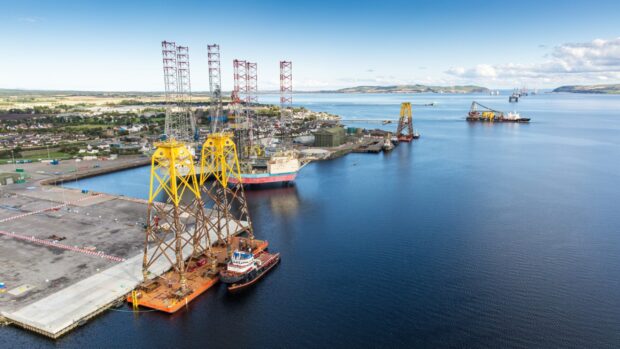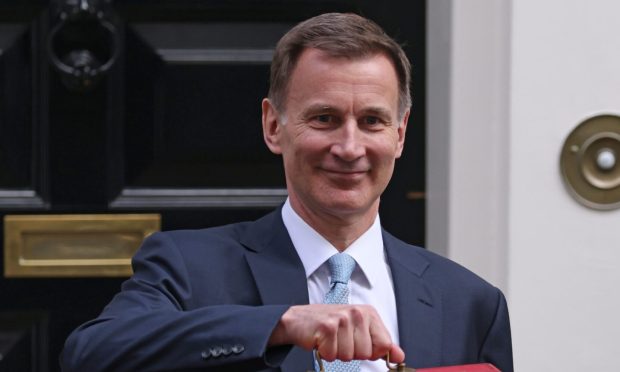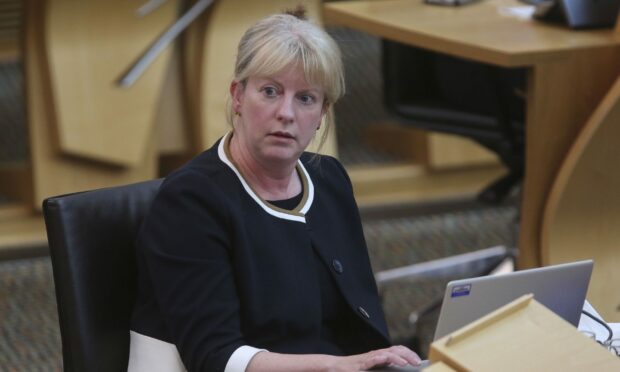The UK and Scottish governments have reached a deal to extend tax breaks for projects linked to the Inverness and Cromarty Firth green freeport for another five years until 2034.
Aberdeen’s investment zone – offering similar tax relief for businesses in the north-east – will also benefit from the agreement.
UK Chancellor Jeremy Hunt announced the plans last week in his Spring Budget after first proposing the extension last November.
We can exclusively reveal the Scottish Government has agreed to the proposals on the day a convention for the Highlands and islands meets in Elgin.
The initiative, which aims to boost business investment with lower taxes and light-touch regulation, is a joint project in Scotland between Holyrood and Westminster.
It’s been estimated freeport status could result in up to 10,000 new jobs across the Highlands, generating up to £3 billion for the local economy.
Inverness and Cromarty Firth was one of two winning bids last January alongside Forth Ports, which covers Edinburgh and surrounding areas.
Both freeports will be covered by the new extension.
It’s hoped the two special economic zones could help create 75,000 jobs in total.
Aberdeen’s investment zone was approved later in 2023 after the north-east region missed out during the race to secure a freeport.
Business leaders in the north of Scotland hailed the latest announcement, claiming it will be a huge boon for the Highland economy.
Calum MacPherson, the freeport’s chief executive, said: “This is a very welcome decision, which will reinforce the transformational impact of the green freeport.
“We forecast that activity at our tax sites directly attributable to the green freeport initiative would lead to the creation of around 10,000 new jobs for the Highlands and islands.
“We are also confident the levels of job creation can go further still with broader initiatives connected with the growth of green energy in the area.”
‘Major boost to our local economy’
Colin Marr, chief executive of the Inverness chamber of commerce, said freeports were central to the Highlands becoming a hub for the renewables industry.
He said: “The news that tax relief is extended till 2034 will make it easier for local businesses to make the decision to invest in this growing sector, and for other businesses to consider relocating here.
“That in turn will provide a major boost to our local economy and will help to halt the population decline across our region.”
Alison Wilson, director of economic development and advancement at the University of Highlands and Islands, said: “We’re pleased the tax reliefs window has been extended until 2034.
“This will ultimately encourage businesses to expand, invest, and create high-quality, well-paid, and long-term employment in the Highlands for students and graduates over the next decade.”
The freeport’s first project, a new manufacturing plant which will create 150 new “green” jobs, was approved in January.
SNP finance chief Shona Robison said: “I am pleased that Scottish and UK ministers have reached agreement on extending the tax reliefs window for green freeports.
“We strongly support firm joint action to ensure that the green freeports and prospective investment zones all live up to a clear set of policy commitments, particularly in relation to our just transition to net zero.
“We continue to work constructively with the UK Government and the Inverness and Cromarty Firth Green Freeport consortium to get the project up and running as quickly as possible.”
But not everyone is in favour of the low-tax economic zones.
The Scottish Greens – who share power with the SNP – are firmly opposed to freeports despite those in favour claiming they can help the environment.
North East MSP Maggie Chapman said: “Freeports are a failed Thatcherite gimmick.
“They are effectively onshore tax havens that are used by corporations and big business to avoid paying their fair share.
“They may be called green freeports, but there is nothing green about them.”
An energy firm focused on the transition from fossil fuels to renewables joined the Inverness and Cromarty Firth consortium last November.
‘Major vote of confidence’
A UK Government spokesperson said: “The chancellor confirmed at the Spring Budget that freeport tax relief will be extended by five years to help maximise new investment.
“It’s a major vote of confidence in the programme and shows what can be achieved when Scotland’s two governments work together.
“Up to £52 million is being invested by the UK Government to create the new Freeports at Inverness and Cromarty Firth and Firth of Forth, bringing regeneration, attracting up to an estimated £10 billion in investment and creating around 75,000 new, high-skilled jobs.”



Conversation